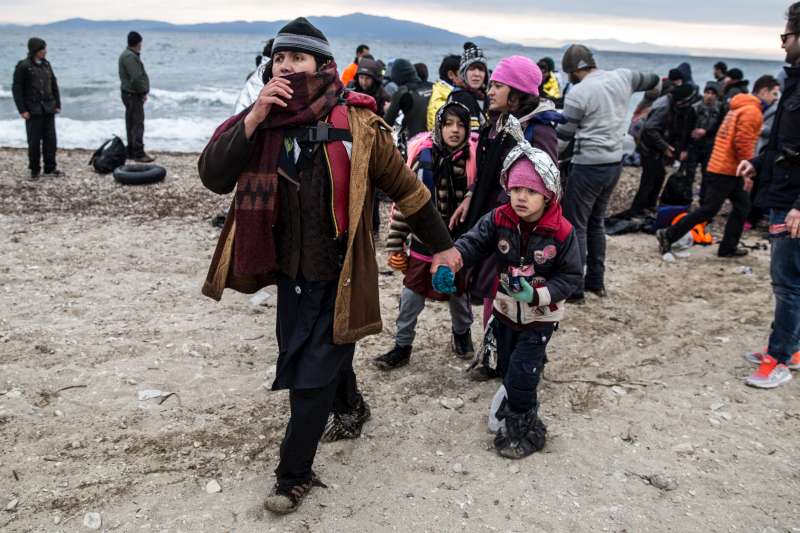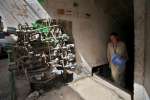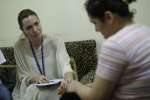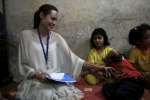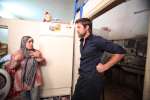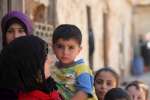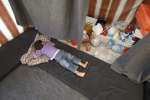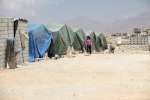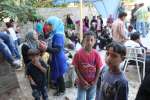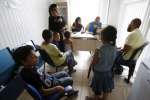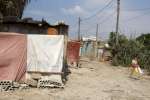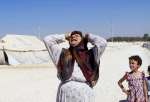- Text size
 |
|  |
|  |
| 
- Français
Some 80,000 refugees arrive in Europe in first six weeks of 2016
News Stories, 12 February 2016
GENEVA, Feb 12 (UNHCR) – Despite rough seas and harsh winter weather, more than 80,000 refugees and migrants arrived in Europe by boat during the first six weeks of 2016, more than in the first four months of 2015, the UN Refugee Agency, UNHCR, announced today.
In addition it said more than 400 people had lost their lives trying to cross the Mediterranean. However, despite the dangers over 2,000 people a day continue to risk their lives and the lives of their children attempting to reach Europe.
Comparable figures for 2015 show such numbers only began arriving in July.
"The majority of those arriving in January 2016, nearly 58 per cent, were women and children; one in three people arriving to Greece were children as compared to just 1 in 10 in September 2015," UNHCR's Chief spokesperson Melissa Fleming told a press briefing in Geneva.
Fleming added that over 91 per cent of those arriving in Greece come from the world's top ten refugee producing countries, including Syria, Afghanistan and Iraq.
"Winter weather and rough seas have not deterred those desperate enough to make the journey, resulting in near daily shipwrecks," she added.
When surveyed upon arrival, most of them cite they had to leave their homeland due to conflict. More than 56 per cent of January arrivals to Greece were from Syria.
However, UNHCR stressed that solutions to Europe's situation were not only eminently possible, but had already been agreed by States and now urgently needed to be implemented. Stabilization is essential and something for which there is also strong public demand.
"Within the context of the necessary reduction of dangerous sea arrivals, safe access to seek asylum, including through resettlement and humanitarian admission, is a fundamental human right that must be protected and respected," Fleming added.
She said that regular pathways to Europe and elsewhere were important for allowing refugees to reach safety without putting their lives in the hands of smugglers and making dangerous sea crossings.
"Avenues, such as enhanced resettlement and humanitarian admission, family reunification, private sponsorship, and humanitarian and refugee student/work visas, should be established to ensure that movements are manageable, controlled and coordinated for countries receiving these refugees," Fleming added.
Vincent Cochetel, UNHCR's Director Bureau for Europe, added that faced with this situation, UNHCR hoped that EU Member States would implement at a faster pace all EU-wide measures agreed upon in 2015, including the implementation of hotspots and the relocation process for 160,000 people already in Greece and Italy and the EU-Turkey Joint-Action Plan.
"If Europe wants to avoid the mess of 2015, it must take action. There is no plan B," he also told the briefing.
UNHCR also called for more to be done to reinforce reception capacities at the points of entry to Europe, to allow for the humane and effective accommodation, assistance, registration and security screening of people arriving every day.
This is needed to identify those requiring protection, those who should be relocated to other countries within the EU, and those who do not qualify for refugee protection and for whom effective and dignified return mechanisms have to be put in place.
Regrettably, the first six weeks of 2016 have also seen multiple developments in Europe suggesting that some countries are prioritizing keeping refugees and migrants out over finding realistic solutions. Since the start of 2016 border control measures have been tightened in many European States. Despite repeated calls by UNHCR to expand legal pathways to allow refugees and asylum seekers to access asylum, many European Member States are in fact reducing the legal avenues available.
On the legal front, restrictive measures on family reunification were imposed in January in Denmark, with refugees now only able to apply for their family to join them after three years, instead of one.
"Other countries are contemplating similar or even more restrictive legislation at a time when European countries need to improve the legal and secure ways to access family reunion and thus combat smuggling," Fleming added.
Recent successive announcements of national measures aimed at trying to appear more unattractive than the neighbouring country only underlines the dire need for an effective comprehensive European response, the problems cannot simply be shifted from one country to another. A race to the bottom helps no-one.
UNHCR recognizes the challenges some European countries are facing due to significant arrivals of asylum seekers, refugees and migrants. Clearly States have a sovereign right to manage their borders; however, this must be done in accordance with national, EU and international law. The possible damaging impact of individual measures and practices on the rights and lives of refugees has to be considered.
Increasing acts of violence and prejudice have jeopardized the safety and well-being of refugees and asylum seekers across Europe. Fuelled by xenophobia and propaganda campaigns based on fear, refugee families, homes and places of worship are being targeted with hate crimes varying from physical attacks, vandalism, arson, and even more sinister incidents such as one where a mosque had blood thrown on its walls and a pig's head left at its door.
Some countries may instate policies to seize money and valuables from some asylum seekers with the purported aim of reducing costs of social assistance. Such measures carry enormous costs of their own, and have the effect of pandering to fear and discrimination.
Quick and thorough support mechanisms will be crucial for integrating people in countries receiving the highest number of refugees, including Germany and Sweden, to help dispel the fear and xenophobia and reinstate the common European principles of dignity, solidarity and human rights that the European Union was founded upon.
Jonathan Clayton, Geneva
